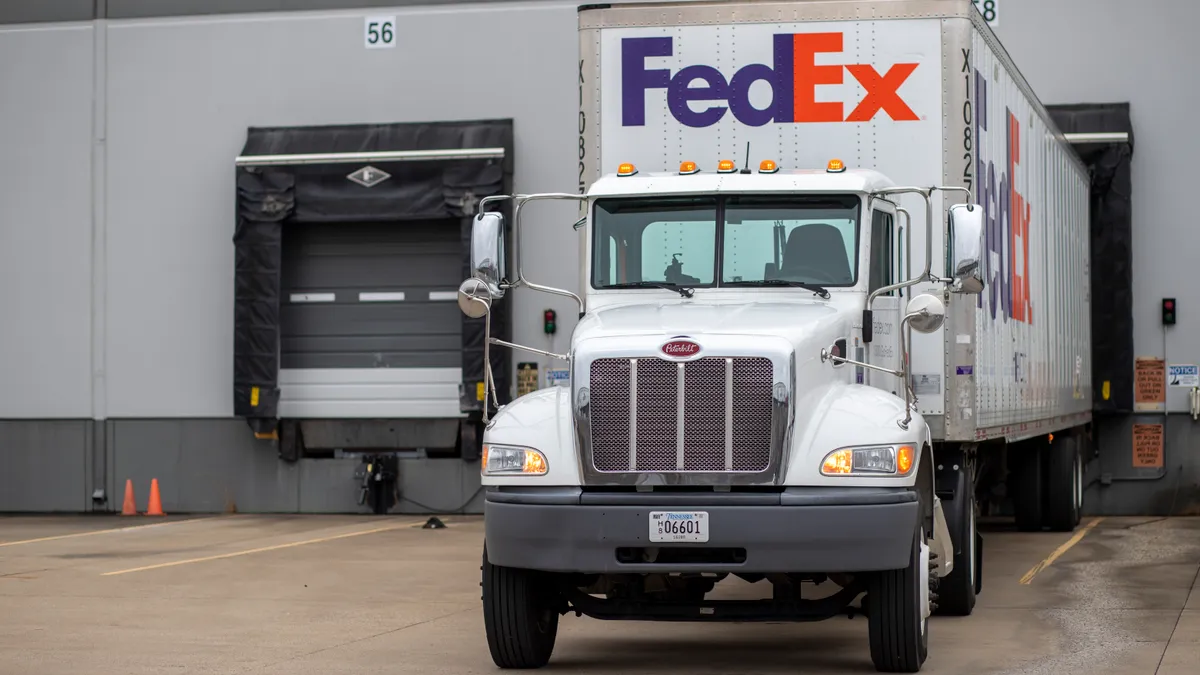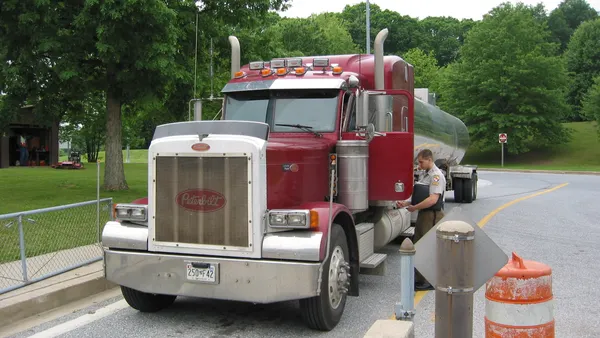With tariffs on U.S. imports continuing to fluctuate, trucking groups are evaluating the expected impact to the industry.
President Donald Trump paused most of his reciprocal tariffs for 90 days Wednesday, but countries will still be subject to a 10% baseline tariff during the pause. Meanwhile, the U.S. hiked tariffs on imports from China to 125% while maintaining sector-specific tariffs.
The shifting landscape is creating uncertainty in the trucking sector.
“We share the Trump administration’s goal to strengthen America and bring manufacturing back but in the short term we are concerned about the impact that these tariffs will have on our industry and the customers we serve,” Jana Jarvis, president and CEO of the Oregon Trucking Association, told Trucking Dive in an email.
Most imported goods, whether they are coming from Japan, Canada, Mexico or any other country, will be on a truck at some point, Jarvis said. Tariffs on imported goods will not only increase costs for equipment but also potentially decrease demand for freight transportation, she added.
For Washington state, higher tariffs could have both devastating short- and long-term effects on freight flows across its borders, according to Washington Trucking Associations’ President and CEO Sheri Call.
“Warehouse and fulfillment centers will likely feel an immediate impact. Farmers and the Ag sector in our State are poised to experience devastating impacts to export goods as they compete on a global scale. Much remains to be seen as we watch cargo flows and trends,” Call said in an email.
Heavy trucks appear to be excluded from tariffs at this time, providing a welcome reprieve, Call said. The overall impact to parts and other equipment is still unknown, however, and trucking groups are “still digging and working through to understand,” she said.
The prolonged freight recession of the last few years also exacerbates the role tariffs play in the industry, according to Jarvis.
“Trucking companies are largely comprised of small businesses – over 95% of trucking companies have 5 trucks or fewer and it is harder for these small businesses to bear the brunt of the impact of tariffs. However, we know that the President and his team understand our industry and also know how vital we are to the economy and the supply chain,” she added.
The Owner-Operator Independent Drivers Association shared similar concerns about the impact of tariffs on a recovery from the freight recession.
“Tariffs on America’s trade partners have the potential to inhibit the recovery from a freight recession that has been acutely felt by America’s small-business truckers, but it is too early to make predictions on specific downstream economic effects,” an OOIDA spokesperson told Trucking Dive.













